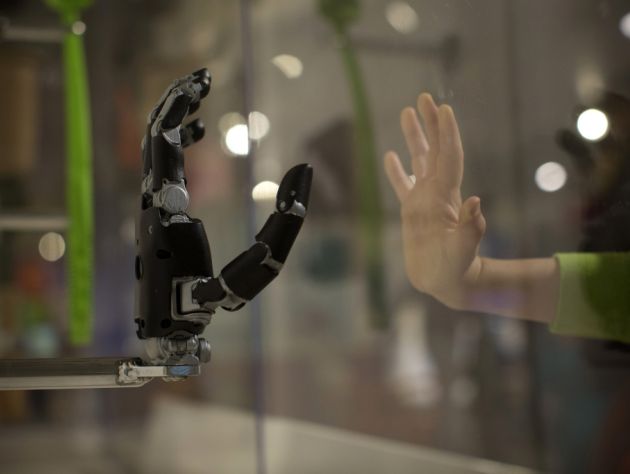
Supporting the Foundation of Fairness in AI
Artificial intelligence is everywhere – in your smartphone, your TV, your social media feed. That can be good. AI can give you everything from improved health care to personalized movie picks. But it also presents challenges, namely ensuring that the AI increasingly present in your life is fair, transparent and accountable.
That might sound simple: just design fair systems. It’s not. Our ability to design systems that can learn, adapt and accomplish complex tasks has seen explosive growth. Our ability to assess whether those systems benefit users without breaching their trust – to make sure they’re fair, not just functional – is still in very early stages. You might support the idea of removing bias from AI. Talk to researchers, though, and they’ll tell you that we still haven’t fully determined what bias is or precisely how it gets into AI, never mind how to keep it out.
We need to learn more about these and many other issues quickly, given how fast the field of AI is moving. For decades, NSF has led the nation in investing in university research to answer those questions, exploring everything from the theoretical foundations of machine learning to the social and economic impacts of AI.
But federal agencies enabling basic research on AI aren’t the only ones making this push. Many of the companies expanding the use of this technology also recognize that, unless it’s trustworthy, AI won’t be effective. And many of these companies have datasets, computational capacity, and their own in-house researchers with expertise in how AI systems are deployed and used. That’s why over a year ago, NSF and Amazon struck up a conversation. Building on past NSF collaborations with industry, perhaps we could work together to fund a grant program specifically geared toward fairness in AI.
The resulting grants, issued just a few weeks ago, went to a group of truly promising projects. Some will look at the fundamental underpinnings of fairness in AI, such as new methods incorporating human perspectives into algorithms, techniques that illuminate causal (rather than merely correlative) factors in unfair outcomes, and the novel use of the mathematics of game theory to understand fairness. Others will use AI technologies to investigate societal issues like racial disparities in health care outcomes and fair distribution of food and services to those in need, to name a few.
Why partner with industry for this program? Because this was an instance where basic researchers and end users in the private sector both saw both a potential issue and an opportunity for collaboration, and they agreed to combine their unique strengths to address it in ways that will produce publicly available research to benefit all Americans, including American companies.
This joint NSF-Amazon program is among the first of its kind. Like AI research itself, we are in the early days of learning how to navigate these sorts of public-private partnerships that seek to benefit society. NSF is a unique partner for industry because of our high standards, which the research community and the public have come to trust. We are committed to preserving that trust. When approaching these relationships with industry and others, we continue to rely on the principles that guide all our grantmaking.
Our goal for these awards is to generate new knowledge about fairness in AI. We also want this program to teach us more about how to design future public-private partnerships that can be even more productive. Partnerships with industry stakeholders can enhance our ability to answer crucial questions about fairness of AI systems. Researchers who have access to more information and data on how industrial AI is developed, deployed and used will be able to draw better conclusions on how AI operates, where flaws exist internally, and how problems arise in interactions with users. By framing research questions in terms of real-world data and systems, technology companies will be able to apply research results rapidly and efficiently.
While basic research can unlock new knowledge, and commercial research and development can transform that knowledge into new applications and products, we need enhanced collaboration and shared expertise among sectors to effectively answer some of the most important questions about achieving equitable AI.
AI development can open new, long-term opportunities for our nation as a whole and for individual citizens so long as we continue to evaluate its impact on society. Partnerships equal to that task will be essential in the future.
The awards are part of the NSF Program on Fairness in Artificial Intelligence in Collaboration with Amazon.
Abstracts for each of the new grants is available in this list from the NSF awards database.







